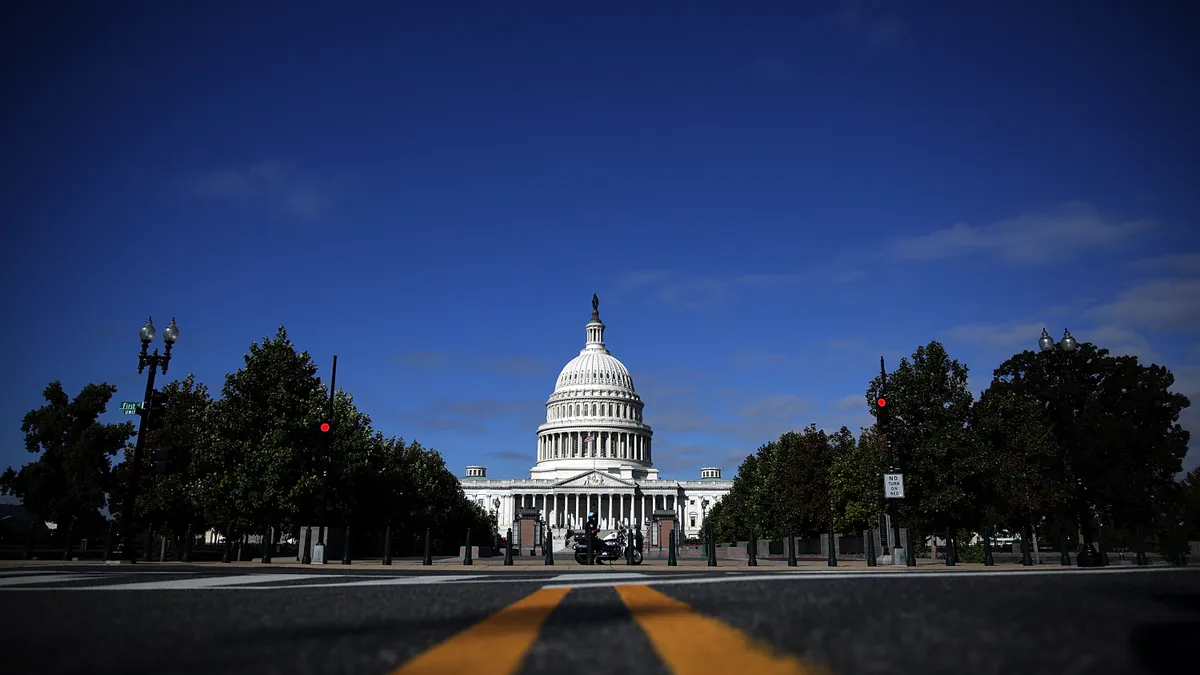Fintech trade groups say they are “deeply concerned” with provisions in a Senate bill that would impede their ability to participate in a government-backed small-business lending program.
The groups say the Community Advantage Loan Program Act of 2023, which the Senate Small Business and Entrepreneurship Committee passed last week, would limit competition as well as subject participating nonbanks to unfair and overly burdensome regulations.
The bill, sponsored by Small Business Committee Chairman Sen. Ben Cardin, D-MD, and the panel’s ranking member Sen. Joni Ernst, R-IA, would limit the number of new nonbank entrants allowed into the Small Business Administration’s 7(a) lending program, and enhance oversight of the program’s nonbank participants, which are categorized as Small Business Lending Companies.
In a letter sent to Ernst and Cardin on Monday, the Electronic Transactions Association, Financial Technology Association, Innovative Lending Platform Association and Small Business Finance Association urged the lawmakers to amend the legislation, which heads to the full Senate.
“We share your objective to protect the integrity of the program and believe that necessary guardrails should be in place for all SBA programs and lenders,” the groups wrote. “However, this bill limits competition in the market by reinstating the 40+ year moratorium on licensing more SBLCs, imposes ‘stress testing’, a costly and unnecessary regulatory requirement on only SBLCs while exempting the other 2,200 lenders in the program, and imposes a restriction on only three new SBLC licensees that limits the speed and efficiency in which they can process loans while also exempting the other 2,200 lenders in the program.”
The senators’ bill is in response to the SBA’s recent decision to end a 40-year moratorium on admitting new nonbank entrants to its flagship 7(a) loan program, an expansion that has been praised by fintechs and touted by Vice President Kamala Harris as a step to increase lending in underserved markets.
Some lawmakers and bank trade groups, however, argue the revamp will weaken the program’s guardrails by allowing less-regulated fintech lenders to issue the government-backed loans.
Bank trade groups have blasted the decision to open the program to new SBLCs, pointing to reports linking fintechs to Paycheck Protection Program fraud.
Fintech stakeholders, however, say their ability to leverage technology and nontraditional data will increase access to SBA programs.
They also said fintechs that directly engage in small business lending are subject to licensing and registration requirements.
“State regulators conduct examinations, impose capital and liquidity requirements, define permissible investments, and enforce laws that protect customers,” the trade groups wrote. “For those offering services through partner banks, they are overseen by their bank partners and are subject to the third-party risk management guidance issued by the federal banking agencies.”
SBLCs, according to the groups, are “already subject to stringent supervision” by the SBA.
“In addition to safety and soundness exams at the time of application, SBLCs are subject to safety and soundness examinations at least once every two years,” the groups said. “In addition, SBA conducts targeted reviews of loan files, among other reviews, to further monitor lender risk.”
The SBA has defended its decision to expand the program, saying it conducted in-depth assessments to ensure it has the capacity to provide oversight and servicing to its entire portfolio of lenders, including any potential additional SBLCs.














